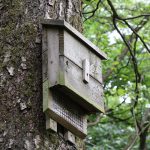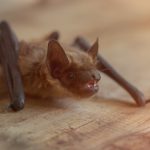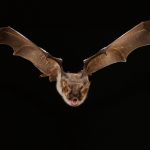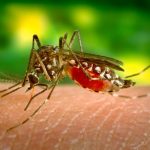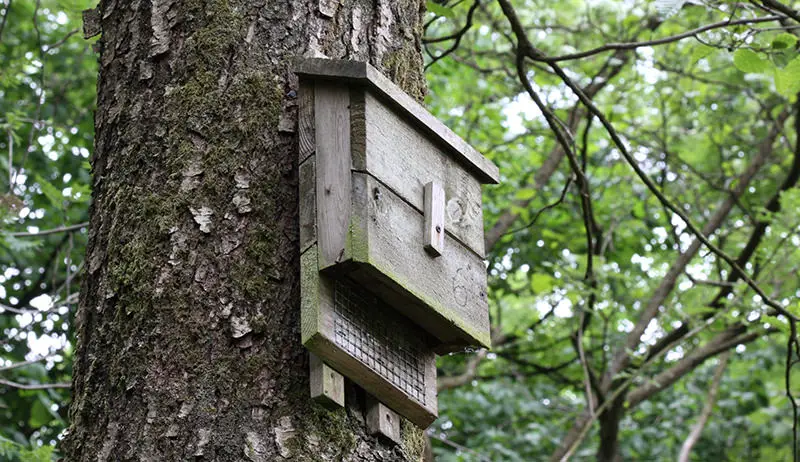Attract mosquito predators by cultivating plants that attract them, such as citronella, lavender, and marigold. Improve your lawn and garden ecosystem by providing water sources and shelter for these predators.
One way to do this is by creating a wetland habitat or installing a water feature like a pond or birdbath. Another effective method is to use biological control agents like dragonflies and birds, which naturally feed on mosquitoes and their larvae.
Encouraging natural predators can help keep the mosquito population in check without the use of harmful chemicals. So, by incorporating these strategies, you can attract mosquito predators and effectively manage mosquito populations in your area.
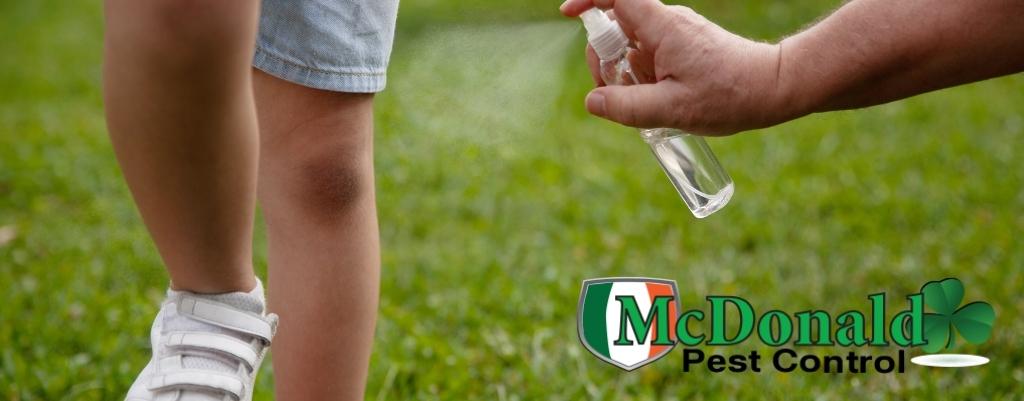
Credit: www.mcdonaldpestcontrol.com
The Importance Of Mosquito Predators In Mosquito Control
Attracting mosquito predators is essential for effective mosquito control. By creating a diverse and attractive habitat, such as providing water sources and planting specific plants, you can encourage the presence of natural predators like birds, bats, dragonflies, and frogs that help keep mosquito populations in check.
Mosquito Predators As Natural Enemies Of Mosquitoes
Mosquito predators play a crucial role in mosquito control by acting as natural enemies of these pesky insects. These predators feed on mosquito larvae and adults, significantly reducing their population. Here are some important points to understand about mosquito predators:
- Dragonflies: These flying creatures are known for their voracious appetite for mosquitoes. Dragonfly nymphs, found in water bodies, consume mosquito larvae, while adult dragonflies hunt down adult mosquitoes in flight.
- Fish: Certain species of fish, such as mosquito fish (gambusia affinis), feed on mosquito larvae. They are often introduced to ponds, ditches, and other standing water areas to control mosquito populations.
- Birds: Insects, including mosquitoes, are a primary food source for many bird species. Birds like purple martins and swallows actively prey on mosquitoes, reducing their numbers naturally.
- Bats: Nocturnal creatures like bats are efficient mosquito predators. With their exceptional echolocation abilities, they consume substantial amounts of mosquitoes during their night-time flights.
- Frogs and toads: These amphibians are known for their appetite for insects, including mosquitoes. Their tadpoles feed on mosquito larvae, and adult frogs and toads gobble up adult mosquitoes.
The Role Of Mosquito Predators In The Ecosystem
Apart from acting as natural enemies of mosquitoes, mosquito predators play an essential role in the ecosystem. Here’s how they contribute:
- Maintaining ecological balance: Mosquito predators, along with other insect predators, help keep the mosquito population in check. This prevents an imbalance in the ecosystem, ensuring that mosquitoes do not dominate and disrupt other organisms’ habitats.
- Controlling disease spread: As mosquitoes are notorious vectors for diseases like malaria, dengue, and zika, the presence of mosquito predators helps in reducing disease transmission. By limiting the mosquito population, they minimize the risk of disease outbreaks.
- Supporting biodiversity: The presence of diverse mosquito predators fosters biodiversity by creating a healthy and balanced ecosystem. Each predator plays a unique role in controlling mosquito populations, contributing to overall ecosystem stability.
- Limiting reliance on pesticides: With effective mosquito predators in place, the need for excessive usage of harmful pesticides can be reduced. This benefits both the environment and human health.
Mosquito predators are essential for maintaining a balance in our environment and keeping mosquito populations in check. By understanding their significance and promoting their presence, we can effectively control mosquitoes and decrease the risks associated with their presence.
Identifying Common Mosquito Predators
Attract natural mosquito predators to your yard by creating a welcoming environment. By using plants that attract dragonflies and birds as well as adding water sources, you can encourage these predators to target and eliminate pesky mosquitoes.
Dragonflies And Damselflies:
- These flying insects are natural predators of mosquitoes and can help to control their population.
- Dragonflies and damselflies have a voracious appetite for mosquitoes and will actively hunt them down.
- They are attracted to still water bodies, where mosquitoes often breed.
- By having dragonflies and damselflies present in your area, you can naturally reduce the number of mosquitoes.
- Dragonflies and damselflies are also beneficial because they eat mosquitoes at all stages of their lifecycle, including larvae and adults.
Birds That Eat Mosquitoes:
- Several bird species feed on mosquitoes, making them effective allies in mosquito control.
- Birds such as swallows, martins, and flycatchers are known to have a diet that includes mosquitoes.
- These birds are attracted to areas with abundant mosquito populations, as they provide them with a readily available food source.
- By providing suitable habitats for these mosquito-eating birds, such as birdhouses or trees for nesting, you can encourage them to frequent your area and help control mosquitoes naturally.
- These birds are not only beautiful to observe but also provide a valuable service in keeping mosquito populations in check.
Bats And Their Mosquito Consumption:
- Bats are nocturnal creatures that are often associated with mosquitoes due to their habit of consuming them.
- Mosquitoes make up a significant portion of a bat’s diet, and some bat species can consume hundreds or even thousands of mosquitoes in a single night.
- Bats use echolocation to locate and capture mosquitoes in flight, making them efficient hunters.
- Creating bat-friendly habitats, such as bat houses, can help attract bats to your area and promote natural mosquito control.
- Bats are beneficial not only for their mosquito consumption but also for their role in pollination and pest control in general.
Remember, attracting mosquito predators to your area can significantly reduce mosquito populations and provide a natural form of mosquito control. By creating suitable habitats and environments for these predators, you can enjoy a more mosquito-free space.
Creating An Ideal Habitat For Mosquito Predators
Attract mosquito predators by creating an ideal habitat. Planting native plants, providing water sources, and avoiding pesticides can help to invite natural predators like dragonflies and birds to reduce mosquito populations naturally.
If you’re tired of dealing with pesky mosquitoes in your yard, attracting mosquito predators is a natural and effective solution. By creating an ideal habitat for these predators, you can reduce mosquito populations and make your outdoor space more enjoyable.
Here are some strategies to consider:
Providing Water Sources For Amphibians And Reptiles:
- Install a small pond or water feature in your garden to attract amphibians like frogs and toads. They dine on mosquito larvae, helping to control their population.
- Create a shallow water dish or container filled with clean water to entice turtles, lizards, and other reptiles. They also contribute to reducing mosquito numbers.
Attracting Birds With Appropriate Plants And Feeders:
- Plant native shrubs, trees, and flowers that provide natural food sources for birds. They’ll be more likely to visit your yard if they can find insects, including mosquitoes, to feast on.
- Hang bird feeders filled with seeds, suet, or nectar to attract a variety of bird species. Many birds, such as swallows, flycatchers, and purple martins, are avid mosquito eaters.
Creating Bat Houses For Mosquito-Eating Bats:
- Install bat houses in areas with sufficient open space, such as on trees or buildings. Bats are known for their voracious appetite for mosquitoes and other insects, making them excellent natural predators.
- Ensure that the bat houses are appropriately designed and placed at the right height and orientation to attract bats. Consult local guidelines or bat conservation organizations for specific recommendations.
Remember, encouraging mosquito predators to frequent your yard requires creating a suitable environment that meets their needs. By providing water sources for amphibians and reptiles, attracting birds with suitable plants and feeders, and creating bat houses for mosquito-eating bats, you can enhance your chances of enjoying a more mosquito-free outdoor experience.
Using Plants To Attract Mosquito Predators
Attract natural mosquito predators by strategically incorporating specific plants into your yard or garden. These plants, like lavender, marigolds, and citronella, naturally repel mosquitoes while attracting insects like dragonflies and bats that feed on them.
Choosing native plants that attract mosquito predators:
- Native plants are well adapted to the local climate and require less maintenance, making them a great choice for attracting mosquito predators.
- Some native plants that attract mosquito predators include goldenrod, purple coneflower, milkweed, and yarrow.
- These plants provide food and shelter for beneficial insects and birds that feed on mosquitoes.
- By incorporating native plants in your garden, you can create a habitat that supports the natural predators of mosquitoes.
Incorporating water plants for amphibians and insects:
- Water plants such as water lilies, water hyacinths, and water lettuce can help create a suitable environment for amphibians and insects that feed on mosquito larvae.
- These plants provide shade and cover for these predators, making your garden an inviting place for them to thrive.
- The presence of water plants also adds beauty and diversity to your garden, enhancing its overall aesthetics.
Creating a diverse ecosystem through plant selection:
- Plant selection plays a crucial role in creating a diverse ecosystem that attracts mosquito predators.
- By including a variety of plants with different heights, textures, and bloom times, you can attract a range of predatory insects, birds, and bats.
- Introducing plants that provide nectar, berries, or seeds can attract birds that feed on mosquitoes and other pests.
- Additionally, planting a mix of annuals, perennials, and grasses can help ensure a continuous food source for mosquito predators throughout the year.
By choosing native plants that attract mosquito predators, incorporating water plants for amphibians and insects, and creating a diverse ecosystem through plant selection, you can effectively attract natural predators of mosquitoes to your garden. This will not only help control mosquito populations but also create a vibrant and balanced ecosystem in your outdoor space.
So, get ready to enjoy a mosquito-free environment while supporting the local wildlife!
Enhancing The Landscape To Promote Mosquito Predators
Enhance your landscape by incorporating natural elements that attract mosquito predators. Create a welcoming habitat for dragonflies, birds, and bats to help control the mosquito population. A balanced ecosystem can naturally reduce the presence of these pesky pests.
A beautifully landscaped yard not only adds aesthetic appeal to your property but can also help create a natural environment that attracts mosquito predators. By incorporating certain features into your landscape design, you can encourage the presence of dragonflies, birds, snakes, and lizards – all of which play a crucial role in controlling mosquito populations.
Here are some effective ways to enhance your landscape and promote mosquito predators:
Incorporating Water Features For Dragonflies And Other Insects:
- Ponds and water gardens: Installing a small pond or water garden can create the perfect habitat for dragonflies. The still water provides a breeding ground for these voracious mosquito predators. Surround the pond with native plants to offer resting spots for dragonflies and attract other beneficial insects.
- Birdbaths and fountains: Adding birdbaths or fountains with shallow water can attract a variety of insects, including dragonflies. The moving water is particularly appealing to them. Consider placing these features in sunny areas with nearby perches where the dragonflies can rest and hunt.
Designing Bird-Friendly Habitats With Shrubs And Trees:
- Native plants: Incorporating native plants into your landscape provides feeding and nesting opportunities for birds, which are natural mosquito predators. Choose a diverse range of plants that offer nectar, berries, or seeds to attract different bird species throughout the year.
- Shrubs and trees: Planting shrubs and trees helps create a habitat that attracts birds, as they offer shelter, nesting sites, and perching spots. Opt for plant varieties that provide year-round interest to entice a diverse array of bird species to your yard.
Using Rock Piles And Log Piles To Attract Snakes And Lizards:
- Rock piles: Constructing rock piles in your yard creates hiding places for snakes and lizards. These reptiles are highly efficient predators of mosquitoes and their larvae, helping to keep their populations in check. Ensure the rock piles have nooks and crevices where these creatures can seek shelter.
- Log piles: Similar to rock piles, log piles provide excellent hiding spots for snakes and lizards, making them more likely to inhabit your yard. Fallen logs can also attract insects that serve as food for these reptiles. Make sure to stack the logs in a way that creates gaps and pockets of shelter.
By incorporating water features for dragonflies, designing bird-friendly habitats, and using rock and log piles to attract snakes and lizards, you can make your landscape a haven for mosquito predators. Creating a diverse and natural environment not only promotes biodiversity but also helps keep the mosquito population in check, ultimately making your outdoor living space more enjoyable.
Implementing Pest Control Measures To Protect Mosquito Predators
Attract mosquito predators effectively by implementing pest control measures. Protecting these predators can help in controlling the mosquito population naturally without the use of harmful chemicals.
Mosquitoes are not only a nuisance to humans but also a major threat to our health. However, instead of solely focusing on eradicating mosquitoes, it is crucial to implement pest control measures that also protect their natural predators. By doing so, we can effectively reduce mosquito populations while maintaining a balanced and sustainable ecosystem.
Here are some key strategies to consider:
Avoiding The Use Of Chemical Pesticides That Harm Predators:
- Embrace natural alternatives: Opt for organic insecticides and repellents that do not harm mosquito predators. This can include plant-based solutions like neem oil, garlic spray, or essential oils with mosquito-repellent properties.
- Selective application: If you must use chemical pesticides, choose options that specifically target mosquitoes while minimizing harm to beneficial insects. Look for formulas that are safe for bees, dragonflies, damselflies, birds, and other natural mosquito predators.
- Time your pesticide application: Apply pesticides during times when mosquito predators are less active or at their lowest population levels. This reduces the chances of unintentional harm to these beneficial creatures.
Implementing Natural Pest Control Methods:
- Encourage native vegetation: Create a welcoming environment for mosquito predators by planting native species that attract and support them. Native plants provide essential habitats, food sources, and shelter for beneficial insects, birds, and amphibians that prey on mosquitoes.
- Install bat houses: Bats are exceptional mosquito predators, with a single bat consuming hundreds of mosquitoes per hour. By erecting bat houses in your area, you provide bats with secure roosting spots, encouraging them to frequent your vicinity and assist in controlling mosquito populations.
- Attract birds: Birds such as purple martins, swallows, and sparrows are natural mosquito predators and can significantly impact their populations. Attract these birds by installing birdhouses or providing bird baths and feeders.
Maintaining A Balance Between Pest Control And Predator Conservation:
- Target larvae instead of adult mosquitoes: Focus on eliminating mosquito breeding grounds like still water sources instead of solely targeting adult mosquitoes. This approach minimizes the need for chemical interventions that may harm predator populations.
- Integrated pest management (ipm) techniques: Implement ipm strategies that prioritize prevention, monitoring, and targeted intervention based on pest population thresholds. By utilizing a combination of methods such as physical barriers, biological controls, and cultural practices, we can manage pests while safeguarding predator populations.
- Educate and raise awareness: Inform others about the importance of protecting mosquito predators and the impact it has on long-term pest control. Encourage community involvement in implementing sustainable pest management practices that consider both human health and the environment.
By adopting these measures, we can attract and protect mosquito predators, promoting a healthier, more balanced ecosystem while reducing mosquito populations. Remember, it is not just about eradicating mosquitoes but ensuring a harmonious coexistence between humans and nature.
Monitoring And Evaluating The Effectiveness Of Mosquito Predator Attraction
Monitoring and evaluating the effectiveness of mosquito predator attraction is crucial to understanding how to attract these natural predators. By closely tracking the results of different techniques, we can determine which methods work best in creating a mosquito-free environment.
Identifying Signs Of Mosquito Population Reduction:
- Look for a decrease in the number of mosquitoes around your property.
- Monitor mosquito breeding sites and note any reduction in their activity.
- Pay attention to any decline in the frequency of mosquito bites.
- Observe the behavior of other insects, such as dragonflies and damselflies, which may indicate a decrease in mosquito populations.
Conducting Regular Assessments Of Predator Presence:
- Keep track of the presence of mosquito predators in your environment.
- Look out for signs of predator activity, such as dragonflies hunting mosquitoes.
- Install predator-friendly habitats like bat houses, bird feeders, or ponds to attract natural predators.
- Use light traps to monitor mosquito predators and compare their presence over time.
Adjusting Strategies Based On Monitoring Results:
- Analyze the data from your mosquito predator monitoring.
- Identify any patterns or trends that indicate the effectiveness of your predator attraction strategies.
- If the monitoring shows low predator presence, consider modifying or introducing new attractants.
- Experiment with different attractants, such as plants that attract beneficial insects, to enhance predator populations.
By regularly monitoring and evaluating the effectiveness of your mosquito predator attraction efforts, you can make informed adjustments to maximize your success in reducing mosquito populations.
Frequently Asked Questions Of How To Attract Mosquito Predators
How Can I Attract Mosquitoes To Kill Them?
To attract mosquitoes and kill them, you can follow these effective strategies. Firstly, remove any standing water from your surroundings since mosquitoes breed in stagnant water. Secondly, use mosquito traps or bug zappers that emit uv light to attract and kill mosquitoes.
Additionally, you can use mosquito repellents or candles that contain ingredients like citronella or eucalyptus, which repel mosquitoes. Another option is to create a inviting environment for mosquito predators, such as birds, bats, or dragonflies, by planting flowers, providing birdhouses, or installing bat boxes.
Lastly, consider using mosquito nets or screens on windows and doors to prevent mosquitoes from entering your living space. By implementing these methods, you can attract mosquitoes and effectively reduce their population.
What Eats Mosquitoes The Most?
Birds, bats, dragonflies, and spiders are the most common predators that eat mosquitoes. These creatures consume mosquitoes as a part of their natural diet. Birds like swallows, purple martins, and sparrows are known for their mosquito-eating abilities. Bats are excellent hunters that can consume large quantities of mosquitoes in a single night.
Dragonflies, with their exceptional flying skills, catch mosquitoes in mid-air, making them effective predators. Spiders set up their webs in areas with high mosquito activity, capturing them as they fly by. These natural predators play an essential role in controlling mosquito populations in their ecosystems.
By controlling mosquitoes’ numbers, these creatures help reduce the risk of mosquito-borne diseases and provide a natural balance to the ecosystem.
What Does Mosquito Hate The Most?
Citronella oil is what mosquitoes hate the most. It has a strong scent that repels them.
What Are Mosquito Hawks Attracted To?
Mosquito hawks, also known as crane flies, are primarily attracted to moist areas and sources of light. These insects are commonly found in damp environments such as swamps, marshes, and near bodies of water. Mosquito hawks are drawn to light sources at night and can be seen hovering around outdoor lighting fixtures.
They are not attracted to human beings, blood, or other traditional mosquito attractants. Instead, they are more interested in nectar, plant sap, and decaying organic matter. Mosquito hawks play a beneficial role in the ecosystem as they prey on other smaller insects and mosquito larvae.
Conclusion
By implementing the tips and strategies discussed in this blog post, you can create an environment that attracts natural mosquito predators to your yard. Remember to incorporate native plants, minimize standing water, and create habitats for beneficial insects like dragonflies and birds.
These steps will not only help control the mosquito population but also promote a healthy and balanced ecosystem in your outdoor space. By understanding the importance of attracting mosquito predators and taking action, you can enjoy a mosquito-free summer without relying on harmful chemical sprays.
So, get ready to sit back, relax, and enjoy your mosquito-free oasis while supporting the natural balance of the environment. With a little effort, you can create a welcoming haven for beneficial insects and keep those pesky mosquitoes at bay.

“My name is Leo Jacob, and I hold a Bachelor of Science degree with Honors in Applied Environmental Science and Sustainability from the University of the West of Scotland. Since childhood, I’ve been passionate about living an eco-friendly life. After completing my studies, I dedicated myself to finding simple ways to lead a more environmentally conscious lifestyle. I launched ecolifely.com to share my educational background and practical experiences with everyone, hoping to inspire others to join me in creating a greener, more sustainable world.”
